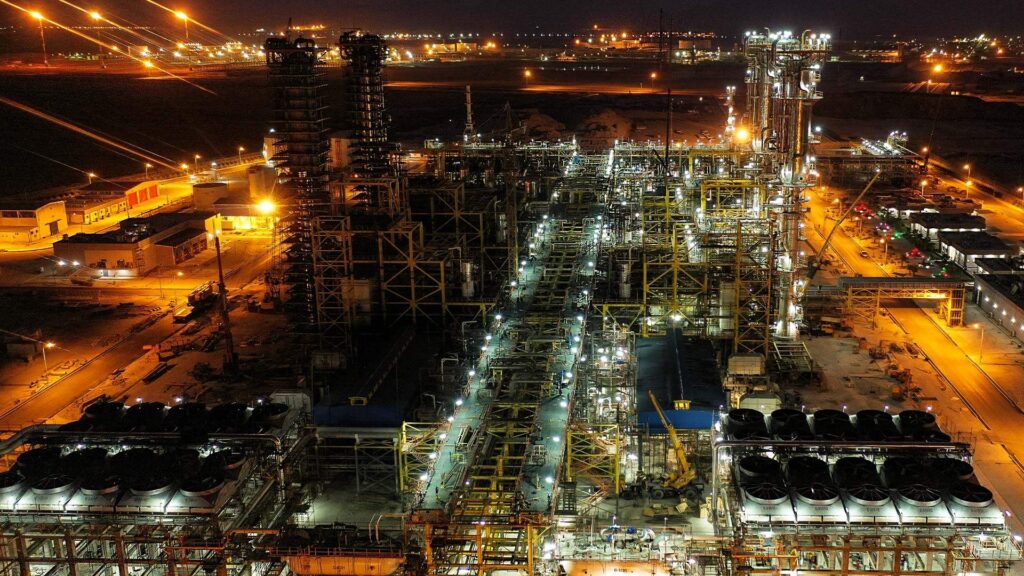Palayesh Parsian Sepehr Gas Refinery

Palayesh Parsian Sepehr
Palayesh Parsian Sepehr Gas Refinery was established in 2010 as one of the national and strategic projects of Iran’s oil and gas industry, with the primary goal of maximizing the recovery of valuable components from natural gas. The company’s main mission is the processing of rich natural gas produced from the Tabnak, Homa, Shanoul, and Varavi fields, separating methane, ethane, propane, butane, and condensates to ensure a stable feedstock supply for downstream industries and the export of high-value hydrocarbon products.
In line with developing and completing the value chain, Palayesh Parsian Sepehr is currently implementing major projects for converting propane into propylene and polypropylene. With the launch of these projects, the company will not only reduce raw material sales but also increase the country’s capacity to produce petrochemical products with higher added value.
Today, Palayesh Parsian Sepehr is not only an advanced gas refinery but also a successful example of knowledge-based management, energy efficiency, and social responsibility. Our vision is to become a leading player in the regional market for gas and petrochemical products while strengthening Iran’s position in the global value chain.
As part of our international strategy, Palayesh Parsian Sepehr is expanding its export activities to new destinations, including Australia, with a focus on delivering high-quality LPG (Propane, Butane, and C5+) to industrial and energy markets in Sydney, Melbourne, Brisbane, and beyond, offering reliable LPG supply to Australia and tailored energy solutions for Australian industries.
In 2014, following the transfer of ownership to Tadbir Energy Development Group (a subsidiary of the Executive Headquarters of Imam Khomeini), construction and operations of the project were launched with the participation of both domestic and international contractors and consultants. The project consists of two main operational sites:
Mohr Site (Fars Province) – located adjacent to the Parsian Gas Refinery, this facility is responsible for methane separation and sweet gas production. The processed methane, refined to international standards, is injected into Iran’s national gas grid.
Assaluyeh Site (Pars Special Economic Zone) – this facility handles the separation and final processing of ethane, propane, butane, and gas condensates. The resulting products are stored and delivered via pipelines or export terminals to meet the needs of both domestic and international customers.
The Assaluyeh export facilities are strategically designed to supply global markets, including Australia, with a reliable stream of LPG (propane and butane) and condensates. This enables Palayesh Parsian Sepehr to serve industries in Sydney, Brisbane, Melbourne, and Perth, supporting Australia’s growing demand for clean and efficient energy sources , and strengthening the company’s role as a trusted partner in reliable LPG supply to Australia.
Operational Units
Production Capabilities and Sustainable Responsibilities
These two sites are connected by a 63-kilometer, 18-inch pipeline to ensure continuous feedstock transfer and operational integration. The project has been designed and executed using advanced cryogenic technology, enabling the recovery of more than 95% of the ethane contained in the feed gas.
The company’s annual nominal production capacity exceeds 3.3 million tons of various hydrocarbon products, including approximately 1.3 million tons of ethane, nearly 1 million tons of liquefied propane and butane, and close to 1 million tons of gas condensates. This scale of production plays a vital role in completing the natural gas value chain, supplying feedstock to petrochemical complexes, and boosting the country’s non-oil exports.
In addition to its successful economic performance, Palayesh Parsian Sepehr is strongly committed to HSE principles (Health, Safety, and Environment) and sustainable development. Key environmental initiatives include preventing the annual release of hundreds of thousands of tons of greenhouse gases, eliminating harmful compounds from urban gas supplies, and establishing a greenbelt in the region. Furthermore, by creating hundreds of direct and indirect job opportunities for local workers, organizing specialized training programs, and participating in infrastructure and social projects, the company has significantly contributed to economic growth and improved quality of life in local communities.
